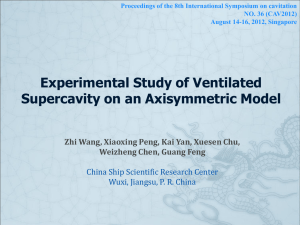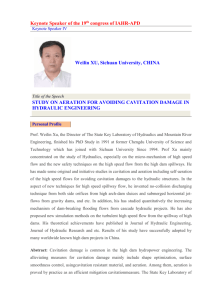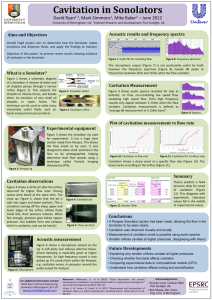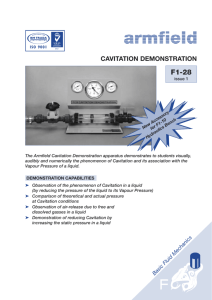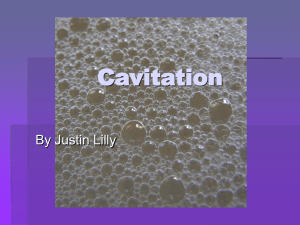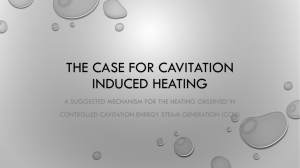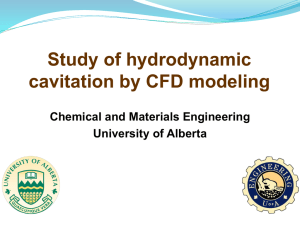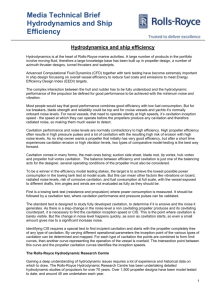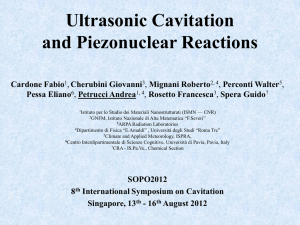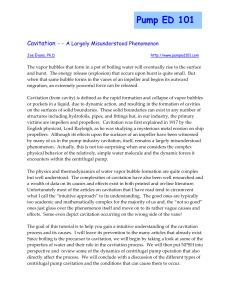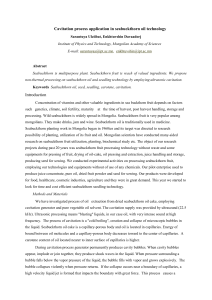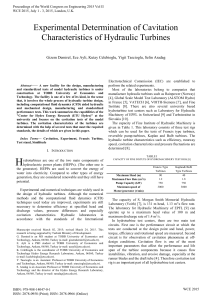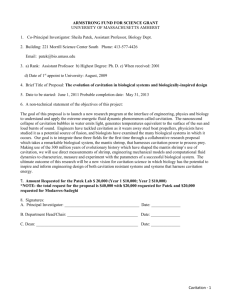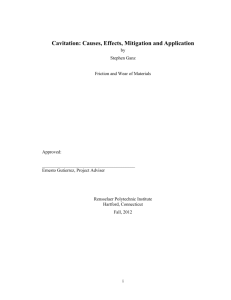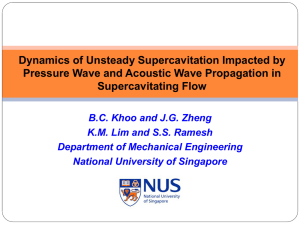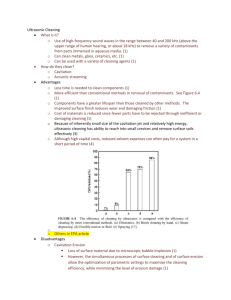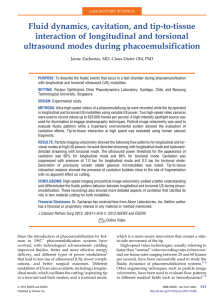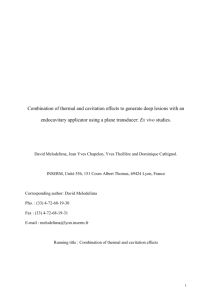Cavitation
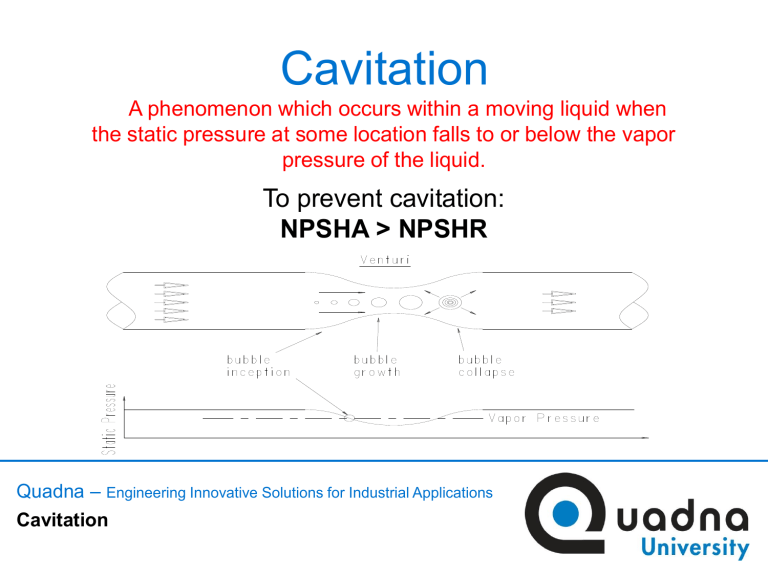
Cavitation
A phenomenon which occurs within a moving liquid when the static pressure at some location falls to or below the vapor pressure of the liquid.
To prevent cavitation:
NPSHA > NPSHR
Quadna –
Engineering Innovative Solutions for Industrial Applications
Cavitation
Cavitation
Quadna –
Engineering Innovative Solutions for Industrial Applications
Cavitation – Impeller
Cavitation can occur at the inlet of the impeller if the suction pressure falls below the liquid vapor pressure.
Quadna –
Engineering Innovative Solutions for Industrial Applications
Cavitation - Impeller
Cavitation – Impeller
Large vapor volumes can cause reduction in head generation, or loss of prime.
• Bubbles collapsing create intense pressures and
(10,000 psi) shock waves.
• Intense pressures near metal surfaces exceed material strength and fatigue metals.
• Creates pitted surfaces.
Large vapor volumes can cause surging and unstable flows.
Quadna –
Engineering Innovative Solutions for Industrial Applications
Cavitation - Impeller
Cavitation
Cavitation is caused by liquid changing into a vapor and then back into a liquid. The
Formation of partial vacuums in a flowing liquid as a result of the separation its parts. When
These collapse, pitting or other damage is
Caused on metal surface in contact.
Cavitation is NOT AIR in the PUMP!
There are two forms of cavitation:
• Suction Cavitation, which occurs at the eye of the impeller, (also referred to as
“true cavitation”.
• Discharge Cavitation, which occurs at the tip of the impeller, (also referred to as recirculation cavitation).
Quadna
What Damage Does Discharge Cavitation Cause?
• Break Shafts
• Shortens Bearing Life
• Destroys Impellers and Volutes
• Ruins Mechanical Seals
Total Dynamic Head Too “HIGH”
Quadna
What Damage Does Suction Cavitation Cause?
• Shortens Bearing Life
(Increased radial & thrust loads)
• Destroys Impellers
• Destroys Wear Plates
• Ruins Mechanical Seals
(Vibration & thrust loads)
Total Dynamic Suction Lift Too “HIGH”
Discharge Head Too “LOW”
Quadna
Chemical Attack Abrasive Wear
Quadna
Discharge Cavitation Suction Cavitation
Shaft Breakage Problems
Radial Fatigue Break
• Total Dynamic Head Too “High”
• Air (Hydraulic Imbalance)
• Mechanical Imbalance
Torsional Break (Twisting Break)
• Pump Lock-UP
• Reverse Rotation (Open Check Valve)
• Short Cycling
Quadna
